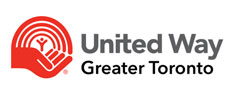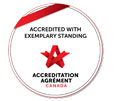Research Proposal Guidelines
Provide the following information under the given headings. If a given question does not apply to your project, write N/A. Avoid technical terms that may not be understood outside your discipline.
1. Background, Purpose, Objectives
1. Background, Purpose, Objectives
Provide a description of the background, purpose, objectives and hypothesis for the research.
2. Research Methodology
Describe how you will carry out the research. Provide a description of the procedures to be used in the conduct of the research, (e.g., interviews, questionnaires, blood tests, chart reviews). State the period during which the procedures will be carried out, how long each will last and be specific about the number and frequency of the procedures.
- Where the research involves interviews, questionnaires, etc., provide a copy of the instrument(s), interview schedules, guides or observation criteria.
- Where the research involves the collection of information (e.g., from documents or databases), include a description of the information sought and the sources to be used.
- Explain how the data will be analyzed.
- Provide a justification for the proposed sample size.
- Provide a justification for the use of deception or placebo, if applicable.
- Describe the design of any experimental interventions to be used.
- Briefly describe the direct implications/applications of the research.
3. Participants
- Describe who the participants are and why they were selected.
- State the proposed sample size.
- Provide relevant inclusion/exclusion criteria. Describe any special issues with the proposed population, i.e. incompetent patients or minors.
4. Recruitment
- Describe how and by whom participants will be approached and recruited. Include copies of any recruiting materials (e.g., letters, advertisements, flyers, telephone scripts). State where participants will be recruited from (e.g. hospital, clinic, school)
- Provide a statement of the investigator’s relationship, if any, to the participants (e.g., treating physician, teacher).
5. Risks and Benefits
List the anticipated risks and benefits to participants. Describe how the risks and benefits are balanced and explain what strategies are in place to minimize/manage any risks.
6. Privacy and Confidentiality
Provide a description of how privacy and confidentiality will be protected. Include a description of data maintenance, storage, release of information, access to information, use of names or codes, destruction of data at the conclusion of the research; include information on the use of audio or video tapes.
7. Compensation
Describe any reimbursements, remuneration or other compensation that will be provided to the participants and the terms of this compensation.
8. Conflicts of Interest
Provide information relevant to actual or potential conflicts of interest (to allow the Review Committee to assess whether participants require information for informed consent).
9. Informed Consent Process
- Provide a description of the procedures that will be followed to obtain informed consent (consult the Tri Council Policy, Section 2 for detailed information on informed consent).
- Include a copy of the information letter(s) and consent form(s).
- Where written informed consent is not being obtained, explain why (see Tri Council Policy, Section 2)
- Where minors are to be included as participants, provide a copy of the assent script to be used.
10. Scholarly Review
If the research poses greater than minimal risk, provide sufficient information to allow the REB to determine whether the design of the project is capable of addressing the questions being asked in the research.
11. Additional Ethics Reviews
Where the research will take place in a location in which another ethical review committee also has jurisdiction over the research, provide a copy of any other Research Ethics Board’s ethics review decision.
12. Contracts
Submit three copies of the research contract, if any.
13. Clinical Trials
- copy of the trial protocol, all amendments and a copy of the investigator’s brochure
- a copy of the budget
- documentation of the research team’s qualifications to conduct the research, i.e. CV’s or Chair’s confirmation



